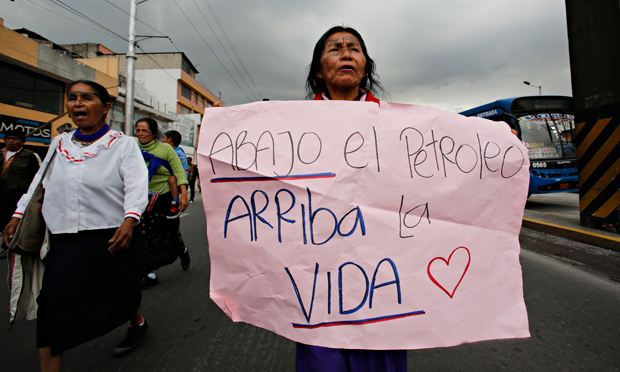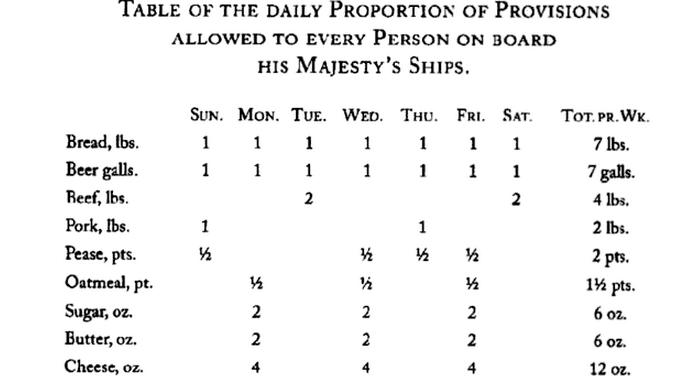
La versión castellano está disponible aquí.
by Giorgos Kallis
Sustainable development and its more recent reincarnation, green growth, promise the impossible goal of perpetuating economic growth without harming the environment. Degrowthers argue that economic change is not about implementing better or greener development. It is about imagining and enacting alternative visions to modern growth-based development.
Degrowth unsettles the commonsensical gaze which sees growth as good. To quote Ursula Le Guin, the intention is to “put a pig on the tracks of a one-way future consisting only of growth.” Or, in other words, degrowth is a “missile concept” to open up a debate silenced by the “sustainable development” consensus.
Here I will respond to five common critiques of Degrowth, which I hope can clarify and advance the case for the concept . For a detailed explanation of Degrowth, you can read our book here or a set of policy proposals derived from our book here.
1. Degrowth is subversive
The first critique is that degrowth signifies a limited and negative viewpoint; a nightmare, rather than a dream. This depends on the eyes of the beholder. For the 3,500 participants in the latest degrowth conference, growth is a living nightmare and degrowth, the dream. Growth has more social costs than benefits, as Herman Daly has documented. It brings us closer to climate disaster, as Kevin Anderson and Naomi Klein show. Then why do we still have to protect it as a positive vision?
For two reasons. The first is that degrowth scares many people who still think that growth is good. The second is that degrowth will be impossible to implement in a system that is against it. Well, if our role as scientists and educators were to please the public opinion and cater to the powers that be, then the earth would still be flat. Degrowth, as Serge Latouche puts it, is an atheist claim against the god of Growth. Growth has substituted for religion in modern societies, providing meaning to all collective endeavours. Degrowth is intentionally subversive; it inverts what is seen as good and what as bad. “Degrowth” initially may not sound nice in this or that language. The point is to make it sound nice. If I judge by a recent article in The Guardian, which argues that degrowth is a “cute word,” then we are succeeding.
Degrowth is not an ultimate objective. “Sharing,” “commons,” or “conviviality” are positive visions used by the degrowth community. Yet if these futures are to come, they will come with a dramatic reduction of material and energy throughput and a radically “simpler way” of living. The fixation with Growth is the main obstacle to a Great Transition. Overcoming the fear of degrowth, and turning the grief of living with less into joy, is a first step.
2. Fewer of the bad things + more of the good ones = Degrowth
The second criticism is that it is not growth per se that is bad, but the current un-economic growth. Care, renewables, and organically-grown food will need to grow in a Great Transition; we need “fewer of the ‘bad’ things…and more of the ‘good’ things,” as one commentator has argued. Who would disagree? Problems start when what we think is good, others think is bad. Liberalism, embodied in consensual notions such as “sustainability,” professes an apolitical neutrality to competing interests. Degrowth, instead, is a partisan claim: these things that typically count as “Growth” (highways, bridges, armies, dams) are bad for “us” degrowthers. Things that are considered anachronisms in the arrow of progress—communal institutions, fresh local food, small cooperatives, or windmills—are good. Perhaps degrowth is an imperfect term for signaling this. Still, it is better than neutral terms like “sustainability,” or “transition”.
Another problem with “the good things argument” is that it is couched in growth terms. 2% annual growth doubles a “thing” every 35 years. If Egypt started with one cubic metre of possessions and grew them by 4.5% per year, by the end of its 3,000-year civilization, it would need 2.5 billion solar systems to store its stuff. Perpetual growth, even of organic food, is an absurdity. It is time to abandon the idiom of growth and focus on good things that need to flourish to a quantity and quality sufficient for satisfying basic needs.
I doubt that transitioning to a “good things” economy could sustain growth. But if it could, then it would mean that absolute decoupling—whereby the growth of economic activity continues and resource use declines—would be possible, as Paul Krugman has recently argued. Let me list three reasons why this is unlikely.
First, a renewable economy will produce less energy surplus (energy return on energy investment) than the fossil fuel economy. An economy with lower energy surpluses will be more labor-intensive, and hence smaller.
Second, a static, disaggregated snapshot of the economy is misleading. It might appear that more GDP from renewables, education, and health and less from the military will equal net GDP growth. This is wrong. Solar panels, hospitals, or university labs are end-products in long chains utilizing primary and intermediate inputs that are energy and resource-intensive. With the danger of overstretching my examples, Britain’s emblematic National Health Service was subsidized by oil secured with arms through the Suez.
Third, a transition from, say, a resource-intensive economy of SUVs to a “weightless” economy of Priuses and Kindles would reduce throughput, but only for a while. Once the transition is complete, any further growth of the Prius-Kindle economy, however resource-light, will still grow throughput. In other words, even if we attempt to ‘grow’ our supply of Priuses, we will still need to increase material and energy use.

There is definitely room for empirical work here. I am willing to consider that a shift to “more good things” may increase GDP, especially if we devise and count a ‘greener’ GDP. I would like to be even more agnostic: I agree that we should simply ‘ignore GDP’, doing “more good things” independent of whatever effect they might have on GDP.
The problem however is that the current system is not “agnostic”. Without GDP growth it collapses (witness Greece). And the vested interests that govern the system are dead against falls in GDP (witness the reaction to climate regulation by lobbies or conservative forums such as ‘the Club for Growth‘ in the U.S).
In other words, we cannot afford to be agnostic in a system that does depend on GDP growth: we have to actively change the institutions of the system so that it no longer depends on GDP growth. We need new institutions to make the inevitable degrowth socially stable and sustainable.

3. Beyond GDP means beyond Growth
The third critique is that the problem is GDP, not growth. If we could only measure the goods an economy provides, say “massages,” and count out the bads, say “oil spills,” then there would be no reason not to want growth.
First, perpetual growth, of whatever, even of a “perfected ” GDP, is an absurd objective. I do not look forward to an Earth with people frantically giving enough massages to satisfy 2.5 billion solar systems. Quantifying success through a set of reliable indicators is one thing, but demanding that they grow perpetually will always be a pointless undertaking.
Second, GDP counts what counts for the current economic system: capital circulation, whatever its source. The decision of the EU to count drugs and prostitution in GDP, but not unpaid care work, is illustrative. GDP counts total monetized value. This is what feeds corporate profits and public coffers, and this is what governments want to secure and stabilize. The metric is an epiphenomenon; it is the result of the social system, not its cause. This is why GDP persists despite criticisms from prominent economists.
Many argue that mainstream economics with its reductionist obsession with maximizing a homogeneous quantity called utility (aka “money”) is part of the problem. I would go further. The emergence and entrenchment of the neoclassical orthodoxy has to be situated within its social context: the triumph, first, of growthism and, then, of neoliberalism. Maximizing money is what the system cares about. As Serge Latouche puts it—tellingly, if somewhat exaggeratedly—”economists are the priests of the religion of growth.” A different type of economics will be part and parcel of a transition to a different social system.

4. “We” should degrow, but not so that “they” grow.
It is often argued that degrowth is irrelevant for the great part of the world still living in poverty. The argument is that while “we” (wealthy, overfed Northerners) may have to degrow, “they” (poor, underfed Southerners) still want and need to grow. This is the most powerful discourse that perpetuates the ideology of growthism. It has to be discarded.
We all—to some degree, or at some periods—feel like “Southerners.” My Greek compatriots tell me degrowth is not for us, for we are now poor and in crisis. The 99% in the US has good reasons to believe that it is the 1% that has to degrow so that it can grow. Even when millionaires are surveyed on how much money they need in order to feel economically secure, they typically state twice what they already have, irrespective of their actual income. Positional comparisons drive and perpetuate the quest for growth. Economic insecurity, at all levels of income, makes everyone run faster and faster so as not to fall. And economic crises, when standards of living suddenly fall and insecurity intensifies, are the moments where the quest for growth reappears most forcefully, as a progressive cause this time. There will never be a time for degrowth.
The people on this planet, perhaps a majority, who lack access to basic goods, such as water or public health, deserve them, and this might entail higher energy and resource use. This need not be couched though in the absurd terms of growth. It is a matter of redistribution and sufficiency. “We” need to degrow so that “Southern” cosmologies and political alternatives closer to the spirit of sufficiency (such as Sumak Kawsay or Ubuntu) can flourish. Southern alternatives are colonized intellectually by developmentalism and materially through the extractive industries that in the name of growth bring destruction and poverty.
I propose the same logic for countries in economic crisis. We do not need to grow our way out of economic crisis in Greece. We need to come up with alternative models of sufficiency rooted in Greek tradition, materialized into institutions that will let us prosper without growth.
I am wary of those talking in the name of others reminding me that unlike what I—an elite intellectual—think, “poor people” (sic) dream of plasma TVs and Ferraris and we can’t deny them their dreams. Most people that I know, including myself, do indeed have materialistic dreams: our positional societies force those on us if we are to remain its dignified and secured members. Fortunately, we also have a longing for a simpler life, for community, friendship, and many other needs that collide with the imaginary of growth. The question is how to change social structures and institutional contexts so that it is these latter aspirations that come to be fulfilled and not our worst acquisitive desires.

5. A transition beyond growth is a transition beyond capitalism
Capitalism is an ensemble of property, financial, and exchange institutions that create relentless competition, forcing enterprises to grow or die. The surpluses generated by this dynamic are constantly reinvested into further growth. A society without growth may still have markets, forms of private property, or money. But as Edward and Robert Skidelsky argue, an economic system which does not grow and in which capital no longer accumulates is no longer capitalism, whatever one might want to call it. Property, credit, or employment institutions will have to be reconfigured in radical ways so to make the system stable without growth. Proposals such as a basic citizen’s income or the public control of money are such radical reforms.
Benign enterprises such as Mondragon or Novo Nordisk, which combine economic with social and environmental considerations are rare exceptions for a reason. In a capitalist economy, the bottom line is profit. Environmental and social concerns can be accommodated by few players who can increase their market share by cashing on socially-responsible consumers. As George Monbiot put it, “capitalism can sell many things, but it can’t sell less.”
If the corporation signifies the globalized growth economy, the sharing cooperative is the emblem of a localized, degrowth economy. In an economy that will no longer grow, worker or consumer cooperatives, which do not depend on perpetually growing profits, have a natural advantage. Of course, not all sharing enterprises have features that make them apt for a degrowth transition. I distinguish the sharing economy from the “rental economy” of AirBnB and similar capitalistic corporations, which, however innovative, reproduces rent-seeking and the dynamics of perpetual surplus creation.
In conclusion
It is appropriate here to invoke Tim Jackson’s dictum that “growth is environmentally unsustainable, but degrowth is socially unstable.” Curiously, this dictum is often invoked against degrowth, insisting on a one-way future where we will make growth sustainable, by a technological, or social miracle. Adherents of this techno-paradise often appeal to innovations like smart housing, hydroponics, robotics, fusion, and supercomputers. Count me out. The point is that such a future is unsustainable, unnecessary, and undesirable (at least by those of us who consider ourselves proponents of degrowth ). Technological fixes shift costs to others, to the environment, and to future generations, at an ever-grander scale. Climate change is the legacy of our past technological achievements. I read Tim Jackson differently. Given that further growth is unsustainable, we have to bring forward the systemic and institutional changes that will make degrowth stable.
Giorgos Kallis is an ecological economist, political ecologist, and professor at the Institute of Environmental Science and Technology, Barcelona. He is the coordinator of the European Network of Political Ecology and editor of the book Degrowth: A Vocabulary for a New Era. His research is motivated by a quest to cross conceptual divides between the social and the natural domains, with particular focus on the political-economic roots of environmental degradation and its uneven distribution along lines of power, income, and class.




